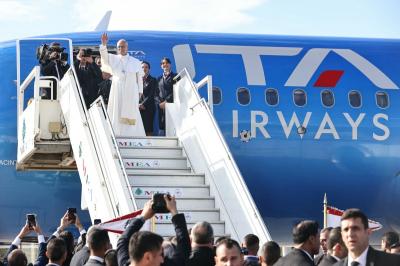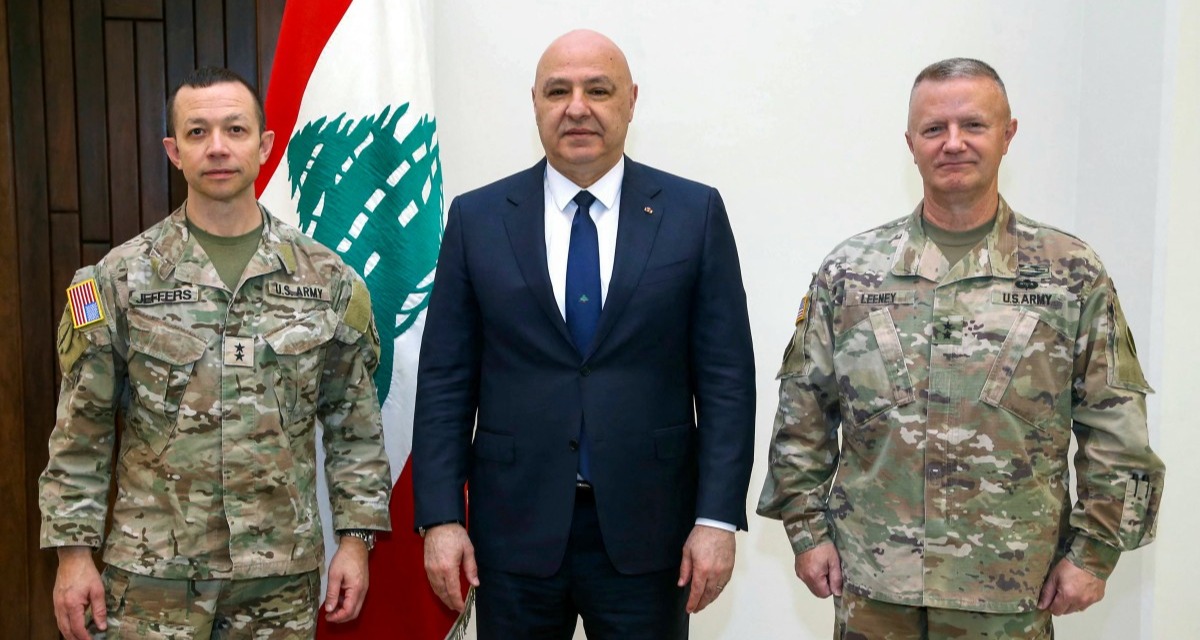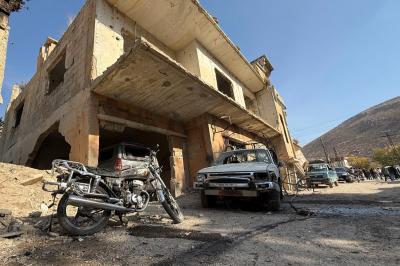A murmur has begun to spread through certain Lebanese political circles, hinting at a potential shift in the U.S. stance on Lebanon. This speculation has intensified following the recent replacement of General Jasper Jeffers, head of the five-party committee monitoring the ceasefire and implementation of UN Resolution 1701, with General Michael G. Linny. Further changes appear imminent, with the expected departure of U.S. presidential envoy to Lebanon, Morgan Ortagus.
These two U.S. personnel changes have sparked a wave of political interpretations, many laced with questions and surprise about their timing and significance, especially as they coincide with ongoing U.S.-Iran negotiations and growing instability in Syria, as well as rumors that Israel is preparing for a new war against Hezbollah.
Supporters of Hezbollah are skeptical that these U.S. changes will bring any meaningful outcomes. They doubt the moves will curb Israel’s daily violations of the ceasefire or alter Lebanon’s internal political dynamics, particularly among groups opposed to Hezbollah and those calling for its disarmament. According to these supporters, the reshuffling reflects a transitional phase for both Lebanon and the broader region—one that will likely conclude with the outcome of U.S.-Iran nuclear negotiations, whether they succeed or collapse.
Regardless of the outcome, it’s unlikely that Hezbollah’s weapons—or those of other anti-Israel resistance movements—will be part of the equation. Tehran has consistently refused to discuss this issue at the negotiating table, insisting talks remain limited to the nuclear file and the sanctions imposed on Iran. This stance is echoed by Hezbollah’s recent rhetoric, which has grown increasingly defiant. The group continues to emphasize its resistance against Israel’s persistent ceasefire violations and its failure to withdraw from remaining occupied Lebanese territories, as stipulated in the November 27 agreement.
Conversely, Hezbollah's opponents—alongside some U.S. policy insiders—suggest that Washington’s approach to Lebanon now moves through two channels. The first is effectively closed, as Hezbollah is viewed as weakened and unlikely to fire another shot. The second suggests that the disarmament of Hezbollah is no longer a U.S. priority. The rationale is practical: most of the group’s heavy weapons were destroyed by Israel, and what remains—possibly a few hidden missiles—doesn’t significantly affect the military balance. Focus has now shifted to Hamas’ weaponry in Lebanon.
Moreover, the presence of Hezbollah’s lighter arms is not perceived as a threat to either the U.S. or Israel, especially if a U.S.-Iran deal is reached. This echoes the historical transformation of U.S.-Vietnam relations: fifty years after Vietnam fell to Soviet-backed forces, it has become a key U.S. political, defense, and economic partner. Today, Vietnam is a major exporter to the U.S. and a leading purchaser of American weapons, having largely abandoned its reliance on Russian arms. The U.S. has also provided Vietnam with substantial support and expertise to develop the strategic port of Haiphong, positioning the country as a regional ally in defending U.S. interests.
Back in Lebanon, some argue that the true safeguard for the country’s Shiite community won’t come from Iran, but rather from a potential U.S.-Iran agreement. Ironically, Hezbollah and the Shiites could emerge as the biggest beneficiaries. This shift in calculations has led to a growing interest in the regional ripple effects of such an agreement.
Within this context, the Lebanese Supreme Defense Council recently issued a recommendation, under the leadership of President General Joseph Aoun, calling on the government to regulate Hamas’ weapons in Lebanon.
What’s particularly striking in recent days is Israel’s apparent divergence from the U.S. on key issues in both Lebanon and Syria. A clear rift has emerged between Washington and Tel Aviv. While Israel, according to its far-right Finance Minister Bezalel Smotrich, wants to partition Syria, the U.S. firmly opposes such a move, just as it continues to reject the idea of partitioning Lebanon, which is often influenced by the Syrian situation and vice versa.
There is a growing belief that former President Donald Trump now poses a real concern for Israel. Many see him urging Israel to align with his strategic vision, given all he has done for the country. Trump often reminds audiences that he provided Israel with unprecedented support, including imposing just a 10% tariff on Israeli goods under his new customs policy, a relatively low figure compared to tariffs imposed on other nations. He also cites the $4 billion in annual U.S. aid to Israel as a reason he will not tolerate any Israeli move that contradicts his regional agenda or drags the U.S. into war with Iran.
In particular, Trump is wary of Israeli Prime Minister Benjamin Netanyahu’s ongoing plans to strike Iran’s nuclear and strategic facilities, moves Netanyahu views as existentially necessary.
So the question remains:
Will Netanyahu follow through, risking a dramatic rupture with Trump?
Or is he simply using the threat of war with Iran as leverage to gain advantages elsewhere?
The answers may unfold in the coming developments.
Please post your comments on:
[email protected]
 Politics
Politics














